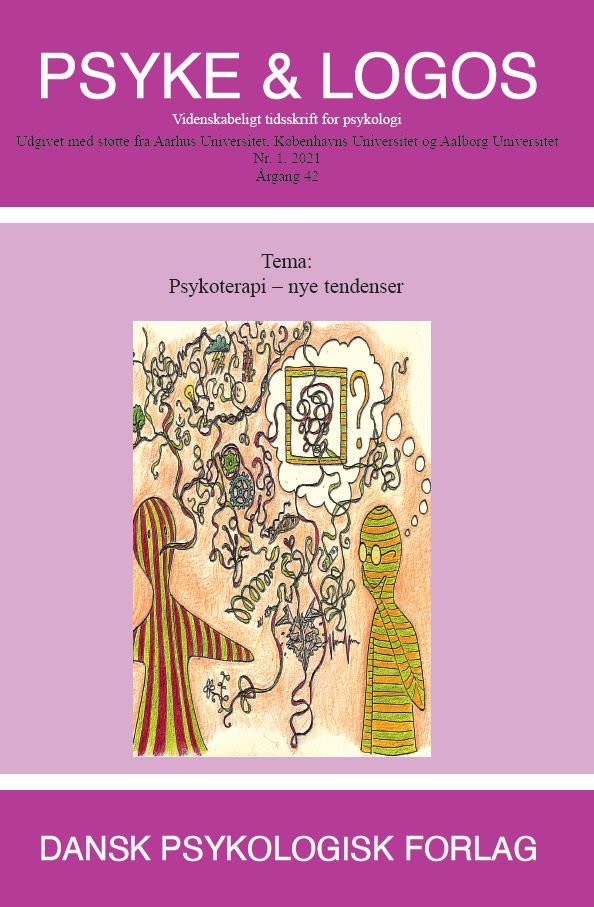Psychotherapy-novices’ qualifications to exercise integrative psychotherapy
DOI:
https://doi.org/10.7146/pl.v42i1.128769Keywords:
psychotherapy integration, integrative therapy, integrative psychotherapy models, common factors, helpful aspects of psychotherapyAbstract
The aim of this article is to examine psychotherapy-novices’ qualifications to exercise integrative psychotherapy. First, an outline is given of the different meanings of integrative psychotherapy and how it is practiced. The remains of the article discuss the pros and cons for the psychotherapy novice to embark on an integrative psychotherapeutic practice. During their studies, psychology students attain a broad knowledge about general and applied psychology. If they were to limit themselves to one single orientation in their beginning psychotherapeutic practice, this would imply leaving out a considerable part of the knowledge acquired through their studies. Integrative psychotherapy presents an alternative. It is characterised by an openness to combine different theories, techniques, and treatment modalities with the intention to tailor psychotherapeutic treatment for the idiosyncratic needs of the client.
The article operates with an expanded notion of what can be the object of integration. Thus, it is argued that the relation between theory/practice, nomothetic/idiographic knowledge, the personality of the therapist and the ways to interact in therapy all are embedded in the integrative processes.
Integration for novices is delineated, not as a particular way to practice therapy but rather as a way in which they can develop as a therapist. Integrative
psychotherapy entails on the one hand an opportunity to choose and mix different theories and interventions that best seem to best fit each client. On
the other, there is a risk that therapy can become incoherent, unpredictable, and based on unconscious attention to own needs instead of what serves the
client best. It is concluded that novices are able to work integratively to the extent that they are able to regulate the complexity that are implicated in
integrative processes with regards to their own cognitive and emotional capacities in the therapeutic situation.
Downloads
Published
How to Cite
Issue
Section
License
Ophavsret er tidsskriftets og forfatternes. Det er gældende praksis, at artikler publiceret i Psyke & Logos, som efterfølgende oversættes til andet sprog, af forfatteren frit kan publiceres i internationale tidsskrifter, dog således at det ved reference fremgår, at den oversatte artikel har et forlæg i en dansksproget version i Psyke & Logos. Artikler kan frit deles og linkes til på forsknings- og undervisningsnetværk (så som Blackboard). Link foretrækkes, fordi det giver oplysning om brug af tidsskriftets artikler.




